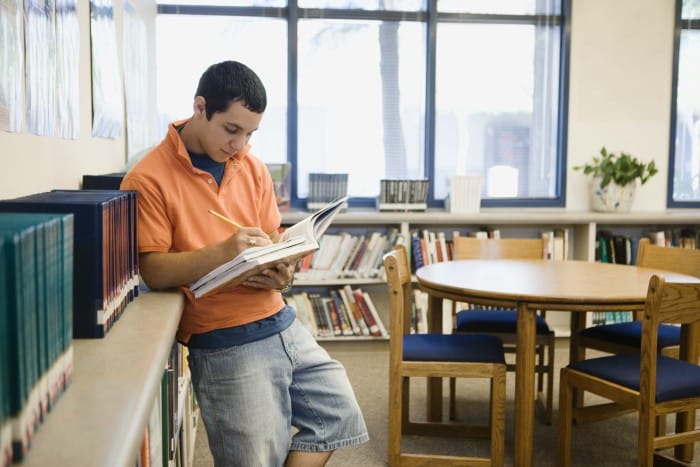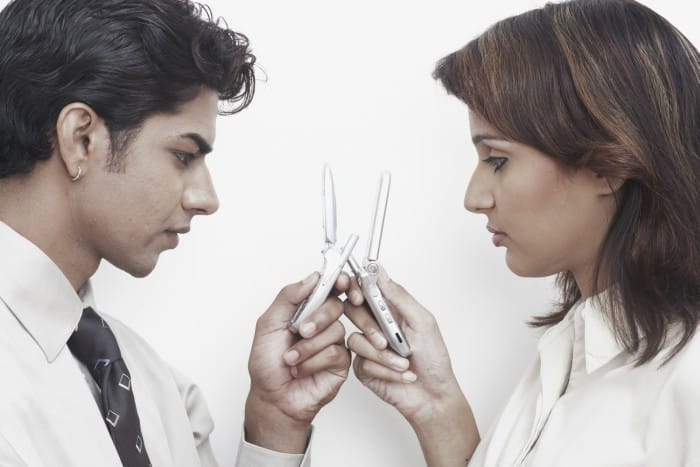Does your teenager suffer from low self-esteem due to teenage-age breakouts? Teenage acne is a normal occurrence during puberty but it can also strike at any anytime during your life. The best way to treat acne is to develop a healthy skin care routine.
Disclosure: This post contains affiliate links.
Parents, if your teenager has acne problems, now is the best time to teach them how to care for their skin and develop a healthy skin care routine that can last a lifetime. Taking care of your skin does take work but it is a habit that they will appreciate for the remainder of their life.
As an adult, let me tell you, having acne is rather embarrassing and I wish that my mom taught me proper tips when I was a teenager. Over the years, I have tried countless over-the-counter remedies and gone to a dermatologist. The number one lesson that I have learned is that consistency matters and prevention goes a long way. I’m a slacker in this department and tend to spot treat as acne crops up. Instead, I should have developed a healthy skin routine and put in the effort to prevent acne.
With a few simple changes, your teenager can achieve and maintain great-looking skin for the rest of their life. A dermatologist can help you determine which type of acne your teenager is suffering from and help you come up with a treatment plan that works with their skin type. It is better to focus on the bigger picture rather than trying to treat acne breakouts as they occur. I suggest eliminating the cause of your acne and start healing your acne scars or blemishes today. Follow this simple daily skin care routine to prevent acne during puberty.
Drink Water
One of my biggest weaknesses is making sure that I drink enough water on a daily basis. I’m not a huge fan of drinking water and I wish that I developed this habit when I was younger. Your child should be sipping on water throughout the day and not waiting until they are thirsty. By the time they receive the signal from their brain that they are thirsty, they are already dehydrated.
Encourage your teenager to prevent dehydration and drink anywhere between five to eight cups (8 ounces) of water on a daily basis. Water is not only important for healthy, glowing skin. But your body needs water in order to function properly. Plus, drinking plenty of water helps flush the toxins out of your body.

Acne during puberty is usually caused by hormones and usually goes away after the body is finished the puberty stage. However, toxin build-up in your teenager’s body can also cause acne. Again, seeing a dermatologist can help you discover the root cause of teenage acne.
Dehydration also causes your skin to appear dry, dull, tight, or flakey. Drinking plenty of water on a daily basis can help prevent your skin from appearing dry, dull, tight, or flakey. Dry skin can be just as unappealing as acne blemishes.
Remove Makeup Before Bed
Ladies, this tip is mostly aimed at you. When you are super tired at bedtime, it can be tempting to leave your makeup on and remove it in the morning. I get it sometimes, you don’t mean to fall asleep with your makeup on. Occasional incidents won’t hurt you but you don’t want to develop a bad habit of falling asleep with your makeup on.
What happens to a hole if you fill it up with dirt? Think of your skin as the hole when it is open, it can allow a critter to take up residence, trap water and debris. Going to sleep with your makeup on is similar to filling up an empty hole with fill dirt. Leaving your makeup on while you are sleeping, doesn’t give your skin the chance to breathe and for the dead cells to naturally sluff off.
When you go to sleep with your makeup on, your skin can’t function properly and any makeup left on your skin overnight can clog your pores, trap oil and dirt, and it can even cause your skin to age quicker. The layer of makeup left on prevents your skin from naturally shedding skin cells. Dead skin cells left on your face can cause your skin to look dull or dry. After you remove your makeup before bed, do use a gentle exfoliating pore cleaner several times a week. I recommend using this one to exfoliate your skin. Clean & Clear Deep Action Exfoliating Scrub (aff link) or you can use a facial cleansing brush.
Cleanse Your Face Daily
Most dermatologists recommend that you wash your face twice a day. The best times to wash your face is in the morning and before bedtime. I get it that life gets busy and you can’t always take the time to wash your face. If you must cleanse your face once a day, it is best to do it at night to wash away any excess oil, dirt, bacteria, debris, and dead skin cells trapped on your face.

Do pick a cleanser that is mild and for acne-prone skin (aff link). You don’t want a cleanser that strips your skin of natural oils. Healthy skin needs oil to help protect your skin and it keeps it moisturized. Using a cleanser that strips the natural oil from your face, can cause your body to produce more oil. Excessive oil can lead to acne blemishes.
Use a Toner or Astringent as a Part of Your Skin Care Routine
A toner or astringent can help remove excessive oil left even after washing your face. It also helps restore the pH of your skin and helps shrink your pores. If your skin is dry naturally or from using acne treatments, it is better to pick a hydrating toner.
Skipping toner won’t hurt you but if you notice that your skin gets too dry, try adding a light moisturizer afterward unless you are using acne medications to clear up blemishes. Then apply the moisturizer on top of your acne treatment.
Apply Acne Medication
There are two different types of acne medication that is sold over the counter. Look for acne medication that contains either one of these active ingredients: salicylic acid or benzoyl peroxide.
Salicylic acid works great on clearing up whiteheads, blackheads, and mild acne.
Benzoyl-peroxide works better for mild to moderate acne.
Some over-the-counter medications contain both ingredients and it can be helpful for treating skin that has multiple types of acne blemishes.
After trying countless over-the-counter acne medications, it might be time to bring out the big guns and see a dermatologist. A dermatologist can prescribe medications that treat acne more aggressively.

Find an Oil-Free Moisturizer
Find an oil-free moisturizer over the top of your acne medication. Most acne medications can dry out your skin and applying an oil-free moisturizer will soften dry skin. Using the wrong type of moisturizer on your face can contribute to your acne problems.
Don’t Pick or Pop Your Pimples
This is one of my biggest struggles when it comes to my adult acne problems. When they hurt, I tend to try to pop my pimples using the proper tools to relieve the pressure. Even though I know it causes more problems, I’m still guilty of doing it.
Picking your pimples with unclean hands can transfer bacteria or debris around the inflamed area and complicate your problem. Plus, squeezing a pimple can cause further skin irritation and push bacteria deeper into your pores. Don’t pick at your pimples either, doing so can cause long-term scarring or leave deep pits on your face.
Even though it is super tempting, you are better off leaving your pimples alone and allowing them to heal naturally. Problem zits should be taken care of by a dermatologist. Your doctor can either drain it properly or give you a local cortisone shot to help reduce swelling and inflammation.
Do you have a pimple that won’t stop throbbing? Try placing an ice cube on your pimple for 20 to 30 seconds several times a day. Ice helps reduce swelling and inflammation.
Prevent Sun Damage
Always apply sunscreen or use a face cream that contains an SPF approved sunscreen on your face even if you don’t plan on going outside for long periods of time. Acne medication tends to dry out your skin and leaves it more vulnerable to damage.

Schedule Facials as Needed
A facial can help treat acne-prone skin and counteract the damaging effects of the sun. Even if you can’t make it to the salon or spa, use clay masks once a month to help moisturize and prevent acne breakouts.
Sanitize Your Phone
Is your teenager addicted to their cell phone? Scientists at the University of Arizona conducted a study and found that cell phones carry 10 times more bacteria than most toilet seats. That is crazy but it makes sense. Our phones go with us everywhere we go, even to the bathroom. Raise your hand if you are guilty of scrolling through Facebook while you are doing your business in the bathroom. *raises hand*
I highly recommend that you and your children get in the habit of using hand sanitizer to kill the germs on your phone on a daily basis. Bacteria and germs lurking on your cell phone can be transferred to your face as you are talking on the phone. Instead, opt to use headphones or use speaker phone when making or receiving a phone call.
Teenage acne can lower your child’s self-confidence and make them feel less attractive. Unfortunately, acne is a common ailment for teens going through puberty. But acne can strike at any point. Prevention is the best way to keep acne breakouts at bay by being diligent enough to follow a healthy skin care routine for acne.



omg all of this- ugh acne is the worst but these tips are super helpful- drinking water for sure is something i need to do more of!
Acne is the worst. I didn’t have it as a teen but have had issues since my boys were born.
This is definitely something I have to think about for my kiddo. They are getting close to the teenage years and I just want to make sure that they have a highest self-esteem that they can!
My teenage grandson recently had a small acne breakout. I rushed over to his house with a face cleanser to help. I’m going to show him these skincare tips because they are all great tips on dealing with acne.
I am lucky I take precaution to cleanse every day and rarely get a pimple. My son is in puberty right now and has a little bit of acne which has not become a big problem yet but your tips are good to remember.
I think sunscreen is a really good one to keep in mind. The sun can really do a number on your skin if you’re not careful.
I will show this to my teen and tween. They both get acne and hate it. My daughter, especially. I tell her she needs to clean her face better because she just splashes water on and hopes for the best.
These are definitely some great ideas! I think that sanitizing your phone is a big one too, in addition to drinking water and washing your face daily. Thanks for sharing.
I once suffered from acne and I was an adult already, hormonal changes and stress were the main reason. I hope my kids won’t suffer from this as it can lower one’s self-esteem.
My 13-year-old is starting to experience acne and he hates it! I’ll have to share some of these tips with him.
Thank you for sharing this helpful tips. Our teenagers could really use this! Drinking water and cleansing your face can really do big change in your skin.
These are wonderful tips and ideas to follow. I think the easiest is just by drinkings lots of water. This is really nice to read.
These are some great tips – I still get acne now and really need to work on getting a routine going which does help me. I’m trying to drink more water at the very least now.
These are great tips and I’ve found it so useful. Thanks for sharing it with us.
These are all really good tips. I agree with all your tips too. These can all be so helpful.
These are some great tips to help prevent acne during puberty. I will have to take this into consideration with the growing kiddos I have here.
Acne can be a big problem during puberty. It’s so important to have a good skincare routine
Acne is a very common skin problem during puberty. Actually, I suffered from extreme dryness and acne during my teenage years. Not so fun! These are great tips and very useful for teenagers!
Grandson #1 has just started getting acne. He just turned 13 this June, so the games begin!!
I know from experience that the best way to avoid acne is to stop it from starting in the first place. Washing your face twice a day is crucial. Thanks for posting!